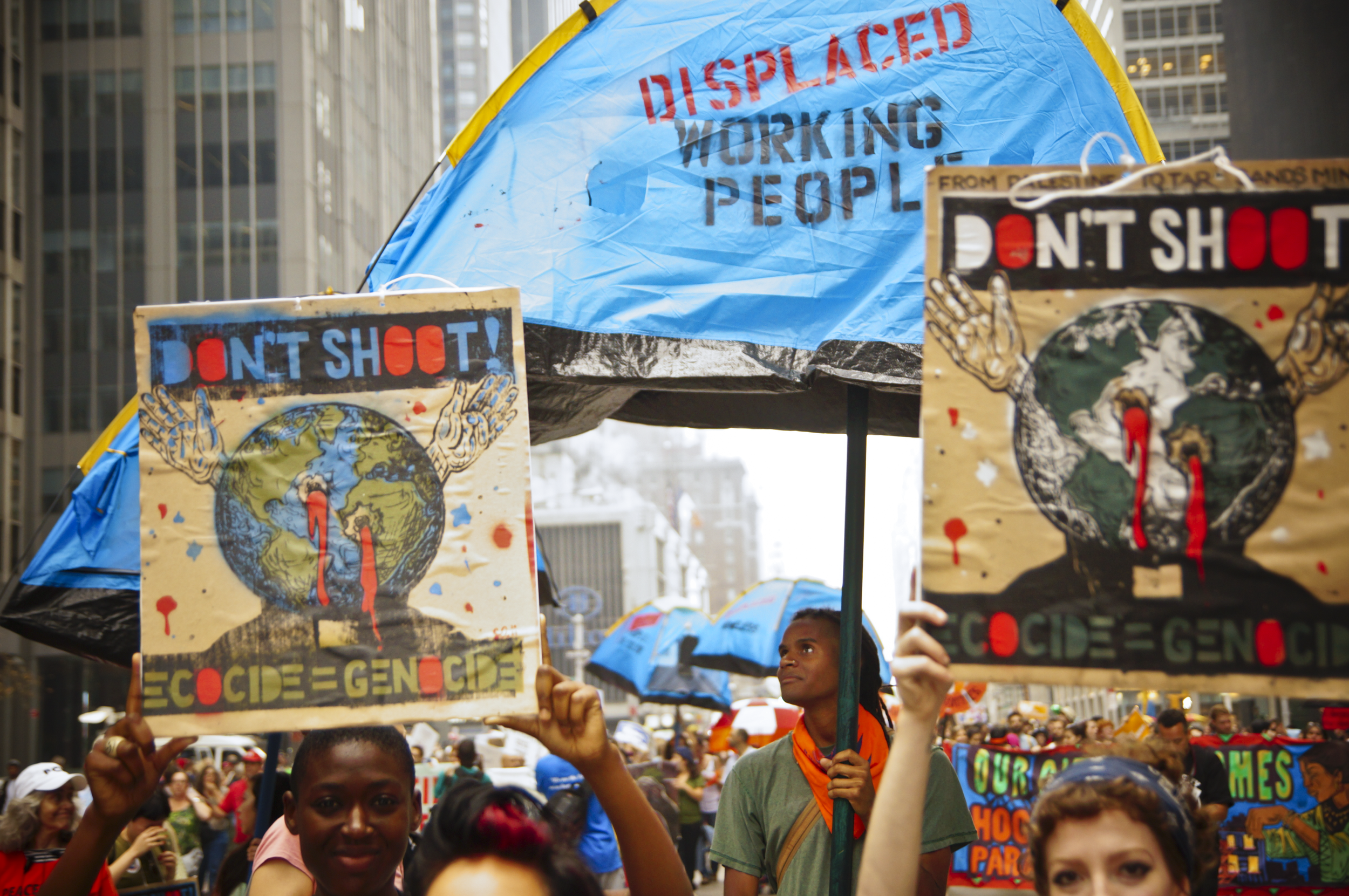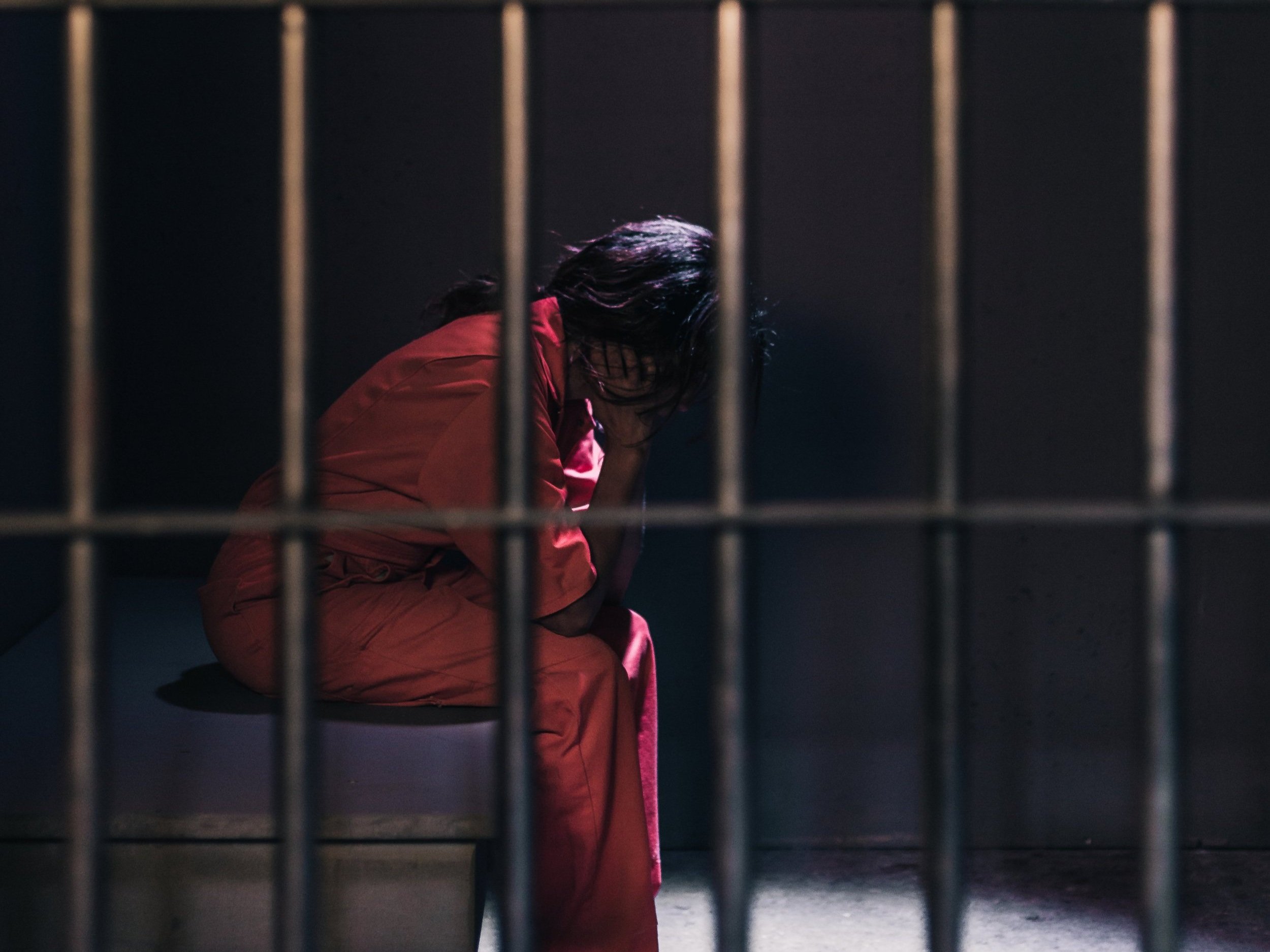
Our Blog
Categories
- Africa
- African Union
- Central Africa
- Citizenship laws
- Competion Law
- Constitutional Court
- Constitutional Law
- Disability rights
- East Africa
- Environmental Law
- Human Rights
- Immigration Laws
- International Law
- Kenya
- Mining Law
- Nigeria
- North Africa
- Political Rights
- Public Law
- Right to Vote
- SADC Region
- South Africa
- Southern Africa
- Uganda
- West Africa
Solving Environmental Harms through an African Model of Environmental Justice
Africa faces a variety of developmental woes that have resulted in various injustices, including environmental injustice. Stephen Morgan discusses the importance of recognising this injustice and makes a case for a reorientation of what we assume to be our moral responsibility towards the environment using indigenous African values and practices.
A children's rights approach to the climate crisis in Africa
Climate change has created a children’s rights crisis which disproportionately affects children on the African continent. Bryony Fox discusses this issue and argues that it is time for a comprehensive children's rights approach to climate change impacts in Africa.
Reconsidering the Rights and Responsibilities of the Corporate Person
Corporations increasingly enjoy more rights but face fewer consequences for abusing rights. Erika George argues that a new approach is urgently needed and that constitutional courts should be more concerned with the concentrated power of the private sector and protecting the public space for effective policy making and adjudication.
Constitutionalism in the Era of Private Power and the Fourth Industrial Revolution
In the course of digitalisation, economic and other activities are increasingly internationalising and their challenges can thus be less frequently addressed through state constitutions. Although there is no constitutional framework that would allow private power to be effectively constrained at the international level, Johannes Masing argues that a certain uniting basis of constitutionalism across borders may be found in human rights.
Povertyism is a Major Obstacle to the Eradication of Poverty. It’s Time to Ban it.
United Nations Special Rapporteur, Olivier De Schutter calls for an end to ‘povertyism’ - the discrimination & negative attitudes that bar people in poverty from fully accessing their rights and for states to include socio-economic status as a suspect ground in national anti-discrimination frameworks.
Bwanya v Master of the High Court: Right for the Wrong Reasons
Bwanya v Master of the High Court was the first occasion on which the Constitutional Court expressly refused to follow one of its previous decisions. Joshua Davis considers the basis on which it did so and the implications for the doctrine of precedent, and argues that the judgment was ultimately right for the wrong reasons.
Population Displacement and Genocidal Violence in an Age of Climate Change
Climate change and the related crime of ecocide have increasingly been the focus of academic and public attention. As once stable weather patterns become more unpredictable and previously rare weather events become more common and more extreme, we are belatedly recognizing that the ecological destruction inflicted on the world around us poses a tremendous threat to not just the natural world, but to humanity as well.
The Parallel Play of Liberty and Subsistence
Amita Dhanda, a plenary speaker at the World Congress of Constitutional Law reflects on the connection between the rights of liberty and subsistence in light of developments in Indian criminal law.
Several reflections on the displacement in the Sahel due to climate change
Environmental degradation has become a serious problem in the Sahel, which is disproportionately impacted by climate change, with temperatures rising 1.5 times faster than the global average, and the situation is further aggravated by political instability. It is, therefore, consequential that this entire situation has produced – and is producing – a massive displacement of populations within the region.
Des objets aux sujets de propriété : Réflexion sur le décalage entre la reconnaissance juridique et sociale des droits des femmes à la propriété foncière en Afrique
Tanveer Rashid Jeewa affirme que ce traitement inhumain vient souvent du fait que les femmes n'ont pas de terre à leur nom et par conséquent, pas de sécurité d'occupation, de logement ou de sécurité économique.
From objects to subjects of property: Reflecting on the gap between legal and social recognition of women’s rights to land ownership in Africa
Women in Africa are often excluded from inheriting, evicted from their lands and homes by in-laws, stripped of their possessions, and have no choice but to engage in risky and non-consensual sexual practices in order to keep their property. Tanveer Rashid Jeewa argues that this inhumane treatment often comes as a result of women having no land to their name and consequently, no security of tenure, shelter or economic security.
Reflections on some challenges to achieving durable solutions to violence-induced internal displacement in Ethiopia
In international refugee law, as well as IDP-specific soft law and practice, three forms of durable solutions, namely, local integration, return and relocation, have been recognised and implemented. These have been adopted in the African Union Convention on the Protection and Assistance to Internally Displaced Persons in Africa (Kampala Convention) – a regional binding treaty ratified by 33 African states, including Ethiopia. Yet, implementing the treaty and realising durable solutions for IDPs has been difficult. This piece identifies several challenges to achieving durable solutions to violence-induced displacement in Ethiopia and offers some recommendations.
The Shell Case: A Victory for Social and Ecological Justice in South Africa
In this post, Louise du Toit examines the South African High Court’s judgement in Sustaining the Wild Coast NPC and Others v Minister of Mineral Resources and Energy and Others. It is argued that the judgement highlights the importance of civil society activism and the crucial role of the judiciary in upholding constitutionally protected social and environmental rights.
Prisons in Africa – a death sentence for women’s rights
Women in African prisons endure abuse, violence, endemic overcrowding, inadequate food, and poor hygiene and sanitation. Sohela Surajpal examines this problem and argues that a feminist movement committed to protecting and empowering the most marginalised among us must look to alternative visions of safety and justice that a divestment from carceral politics might offer us.
South Africa, the Rainbow Nation that only loves certain colours of the Rainbow?
The post-apartheid era has seen the golden age of transformative laws and policies, providing rights and legal entitlements for the previously disadvantaged within South Africa. However, in as much as South Africa has celebrated over 28 years of democracy, that democracy can rightly be argued to exclude non-South Africans. Do we intend to equally provide basic rights to all persons within our borders or is South Africa a rainbow nation that only loves certain colours of the rainbow?
- BBI judgment
- Children's rights
- Climate Change
- Constitutional Law
- Constitutional reform
- Covid-19
- Democracy
- Election series
- Elections
- Environmental Justice
- Equality
- Human Rights
- International Law
- Judicial independence
- Kenya
- LGBTQ+ Rights
- Migration
- Namibia
- Nigeria
- Political Rights
- Public participation
- Refugee and migration series
- Refugees
- South Africa
- South African Constitution
- Voting Rights
- Women in Africa
- Women's Month
- Women's rights
- World Congress
Submissions
We welcome unsolicited submissions covering current legal developments in constitutional law, fundamental rights law, public law, international law and related fields.















